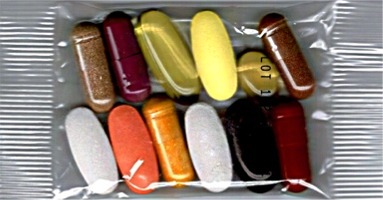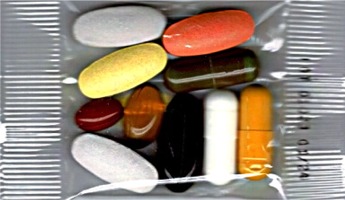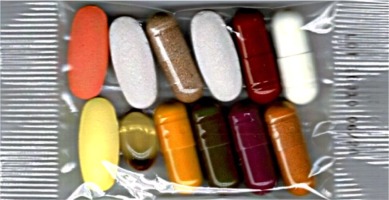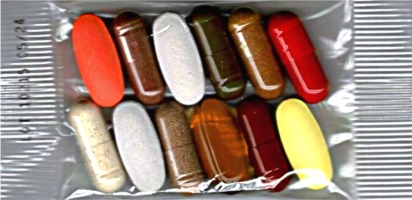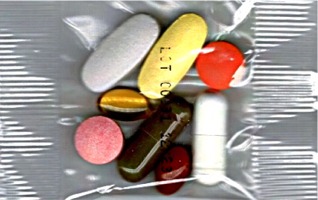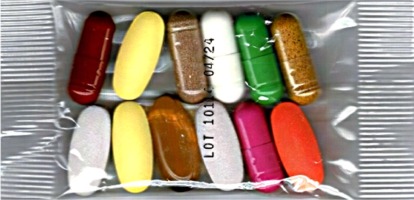VITAMIN EIMPORTANCE: Vitamin E is a "super" anti-oxidant, which protects cells against damage caused by "free radicals". It is extremely important in the prevention of cancer and cardiovascular disease, and is useful in treating premenstrual syndrome and fibrocystic disease of the breast. Thus far, studies have shown, that It protects against approximately eighty diseases. It prevents thick scar formation when applied topically, and accelerates the healing of burns. It reduces blood pressure, aids in preventing cataracts, relieves leg cramps, and enhances sperm production. It promotes healthy skin and hair and prevents age spots. It retards cellular aging due to oxidation. It prevents and dissolves blood clots; slows the progression of Alzheimer's disease; significantly strengthens the immune system; supplies oxygen to the blood which is then carried to the heart and other organs thus alleviating fatigue. It treats circulatory problems and prevents lung toxicity from air pollution; enhances sexual performance; improves muscle strength and stamina. Studies have shown that low levels of Vitamin E in the blood increases the risk of certain types of cancer, particularly cancers of the gastrointestinal tract, breast, prostate, lung, and colon. Studies have shown that It improves insulin action and it exerts a number of beneficial effects that aids in preventing long-term complications of diabetes, especially cardiovascular disease. Studies have shown that those who took It on a regular basis had a 41 % lower risk of heart disease. Other studies have shown that people with existing heart disease, who started taking 400-800 IU of Vitamin E daily, had a 70% reduction in the number of heart attacks as compared to a placebo group.The Food and Nutrition Board of the Institute of Medicine has set an upper tolerable intake level (UL) for Vitamin E at 1,500 IU for any form of supplementary alpha-tocopherol per day. Based for the most part on the result of animal studies, the Board decided that because It can act as an anticoagulant and may increase the risk of bleeding problems. 1,500 UL is the highest dose of Vitamin E unlikely to result in bleeding problems. Note: There are three forms of Vitamin E on the market: (1) 100% Synthetic (2) Blended (contains 95% Synthetic and 5% Natural) (3) 100% Natural. Synthetic E is much less effective (only 5 to 20% as much biological activity) as the 100% Natural form. Synthetic Vitamin E is usually made from petroleum, turpentine, sugar, and artificial preservatives. According to the New York Academy of Sciences, synthetic Vitamin E has been shown to block the absorption of natural Vitamin E from food. The FDA allows the blended form of Vitamin E to be labeled as "Natural E" even though it only contains 5% natural products. As a result, consumers are mislead into thinking it is a 100% Natural E, when it is not! It's 95% synthetic. The 100% Natural form of Vitamin E is derived from soybeans and contains 5 times more biological activity than the synthetic form.DEFICIENCY SYMPTOMS: Deficiency of Vitamin E may lead to a rupture of red blood cells, loss of reproductive powers, lack of sexual vitality, abnormal fat deposits in muscles, degenerative changes in the changes in the heart and other muscles; dry skin.Food sources of Vitamin E: Formulas that contain 100% Natural VITAMIN E: Alert Heart Maximus One Two Three Four Five Six Seven. See References and GLOSSARY INDEX
|
